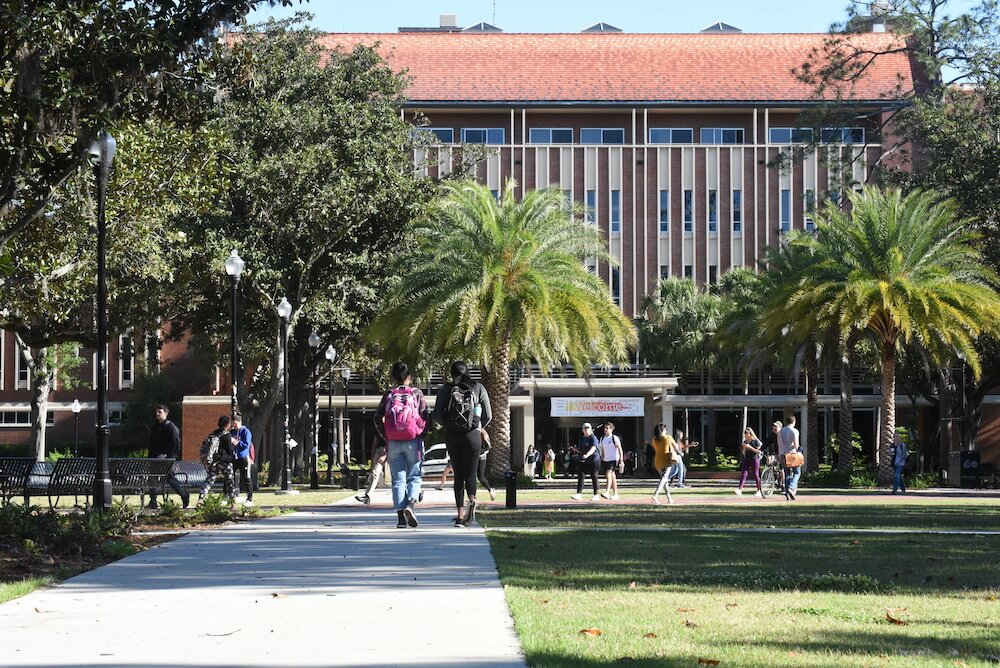According to Colleen Flaherty of Inside Higher Ed, a federal judge has granted a preliminary injunction against the University of Florida in an academic freedom case brought by UF professors. Flaherty explains that the professors accused the university of violating First Amendment rights by using its conflict-of-interest policy to stop any faculty or staff from being expert witnesses or providing legal consulting in any lawsuits involving the state. The chief judge who granted the injunction is Mark Walker, a two-time UF alum. Walker compared UF’s behavior to reported acts of censorship at University of Hong Kong in his 74-page order.
According to Flaherty, three political scientists who study elections, Sharon Austin, Michael McDonald, and Daniel A. Smith, sued UF in November after initially being denied approval to serve as expert witnesses in a lawsuit against Florida. The law in question, backed by Governor Ron DeSantis, restricts mail-in and drop-box voting. It also bans non-poll workers from offering food and drinks to people waiting in line to vote.
Flaherty explains that the professors’ research would have supported the plaintiffs, not the state, and that the professors were told that, given that the university is a state entity, their participation was against the university’s own interests. The university immediately faced criticism and changed their decision, allowing the professors to participate if they did so pro bono. The school changed the decision again, allowing the professors to be compensated. The professors sued UF anyways, stating that “they wanted to prevent the university from similarly violating other professors’ First Amendment rights via the conflict-of-interest policy in the future.”
According to Divya Kumar of The Tampa Bay Times, three additional professors who were denied approval to participate in a different legal challenge against the state joined the lawsuit against UF as well. One of those professors, pediatrician Dr. Jeffrey Goldhagen, was barred from serving as an expert witness in a legal challenge to the governor’s ban on school mask mandates. According to Flaherty, unlike the political science professors, Dr. Goldhagen said he was never being compensated nor asked if he was going to be compensated for his testimony. According to The New York Times, academic freedom and free speech experts said the distinction between being compensated or not is legally irrelevant and professors across the country have been compensated for expert testimony, regardless of whether or not it goes against the state’s interests.
Inside Higher Ed quotes David A. O’Neil, one of the professors’ lawyers, as having said “Judge Walker’s decision is a ringing endorsement for the critical importance of faculty free speech and academic freedom to the health of our democracy. The university may no longer prohibit faculty members from sharing their views with courts and the public just because the ruling political party doesn’t want to hear the truth.” O’Neil also argued that this sends a clear message to public universities across the country that they must honor constitutional freedoms.
This case has brought negative attention to the University of Florida and to President Kent Fuchs, according to Flaherty. It has triggered an inquiry into the school by its accreditor. Fuchs announced that he is stepping down as president as soon as a new one can be appointed, likely in the beginning of 2023. However, the school says the lawsuit was not part of this decision and Fuchs had informed the Board of Trustees of his plans last August.
According to Flaherty, Fuchs created a task force to revise its conflict-of-interest policy during this lawsuit. University lawyers cited this task force as a reason as to why Judge Walker should dismiss the case, but Walker refused, arguing that the case will be how the policy is applied in the future, not the past. He also cited public comments made by the governing board chair, Mori Hosseini, after the lawsuit had already been filed about professors “taking second jobs,” “using their positions of authority to improperly advocate personal political viewpoints” and “misusing their positions.” Additionally, Walker cited a December UF Faculty Senate report explaining other allegations of censorship by UF administrators. UF employees were “told verbally not to criticize the Governor of Florida or UF policies related to Covid-19 in media interactions.” A bench trial for this lawsuit is scheduled for November.
According to an opinion piece published by The Alligator, an independent University of Florida newspaper, some UF students and professors believe UF administrators did not do enough when changing the conflict-of-interest policy. The editors of The Alligator say the recommendations of the task force “were a band-aid approach in the eyes of the professors” who were involved in the lawsuit. The editors believe that UF needs to take more responsibility for its actions.
Further, in an opinion piece published by The Tallahassee Democrat, author Robert Jerry explains that UF, “as a state actor, felt it needed to align itself with the governor’s wishes.” He further explains that Governor DeSantis does not want the evidence the professors would share to reach the court. Jerry states that “UF is abandoning its role, which attaches to all public universities, to discover truth and serve democracy.” According to Jerry, UF’s mission is to discover and transmit knowledge in service of the public, so the school is abandoning its mission when it stops professors from appearing as expert witnesses.
At the end of the day, universities must protect professors’ First Amendment rights, regardless of whether or not their views conflict with those of their university. Just as research institutions must accurately publish their findings in studies, professors must have the right to share factual evidence in court without fear of punishment. It is the responsibility of higher education institutions to encourage students to search for the truth and factual information. They cannot hold their professors to another standard.












